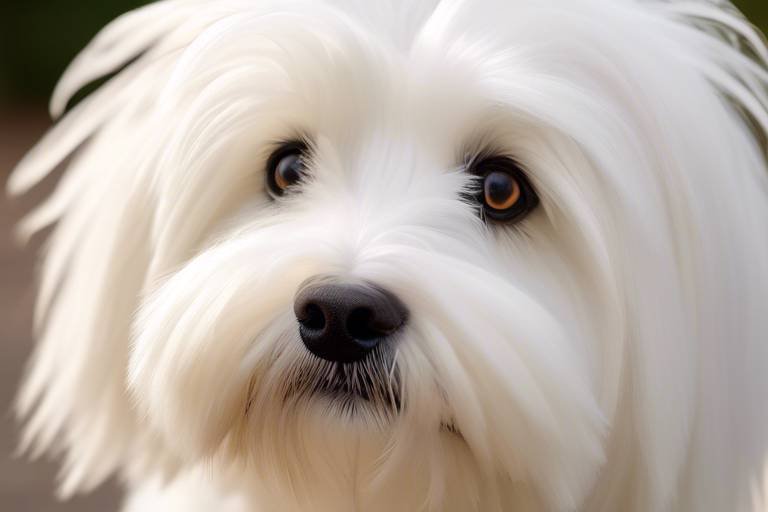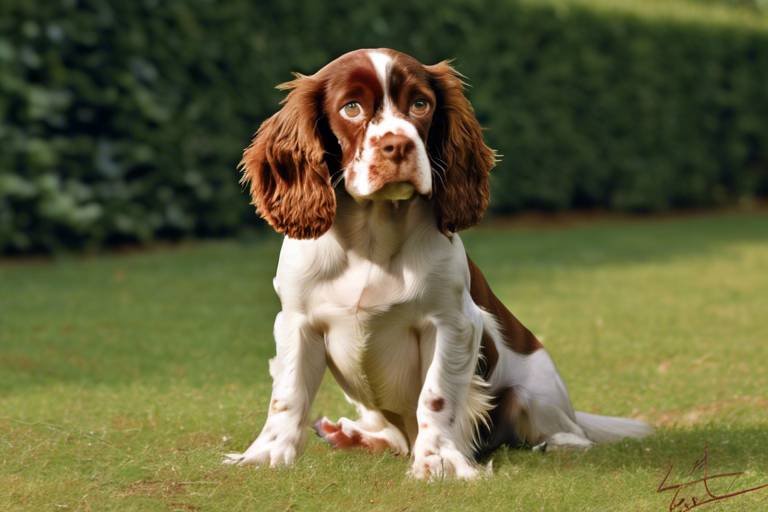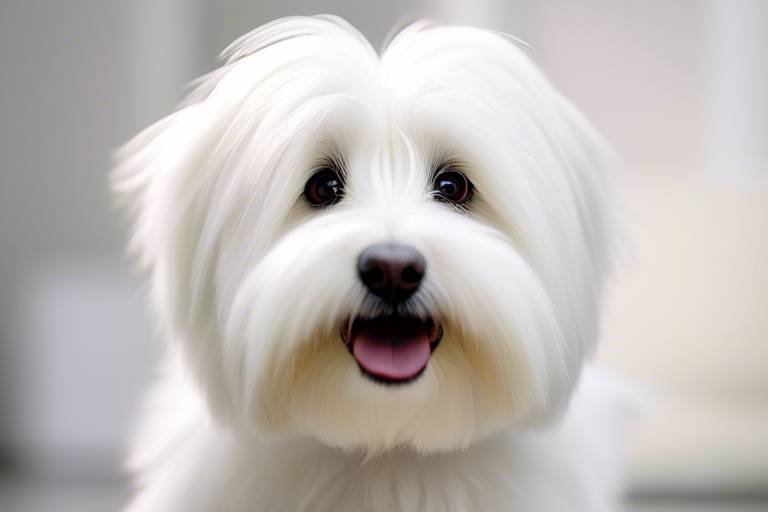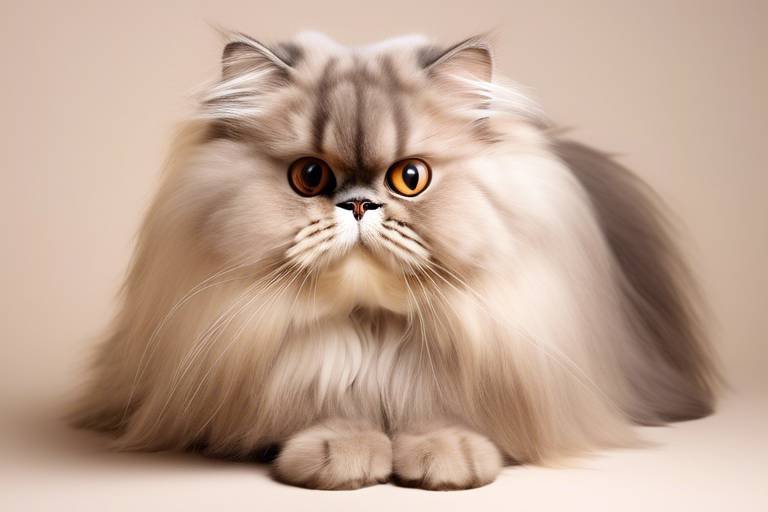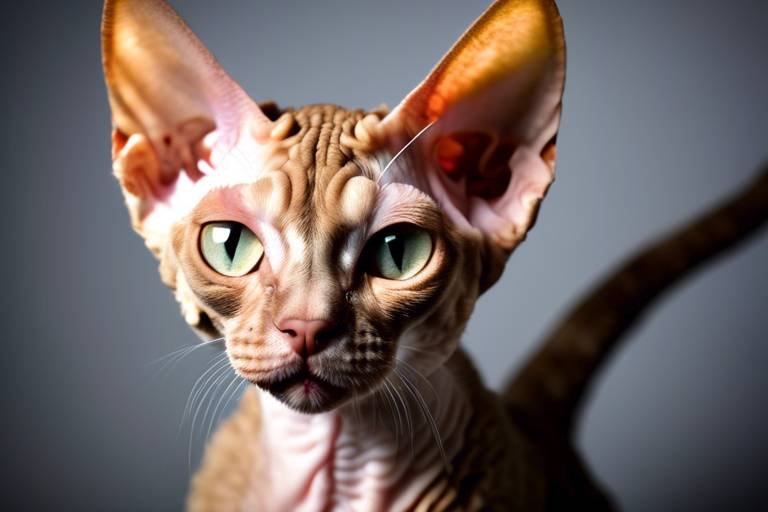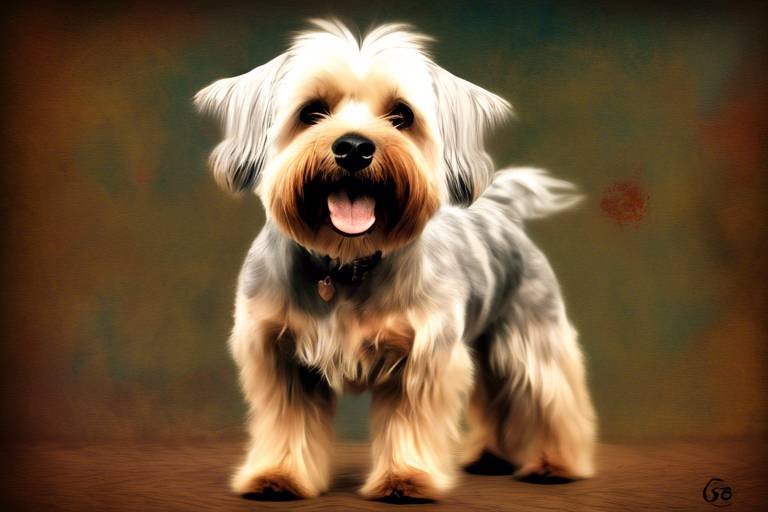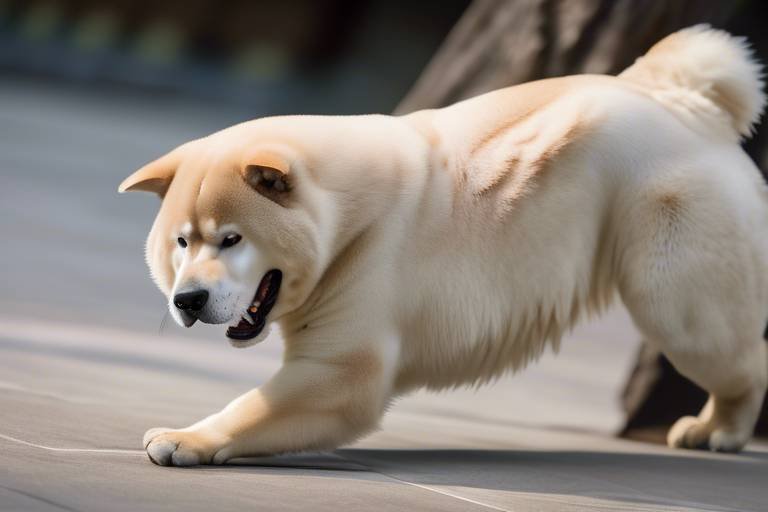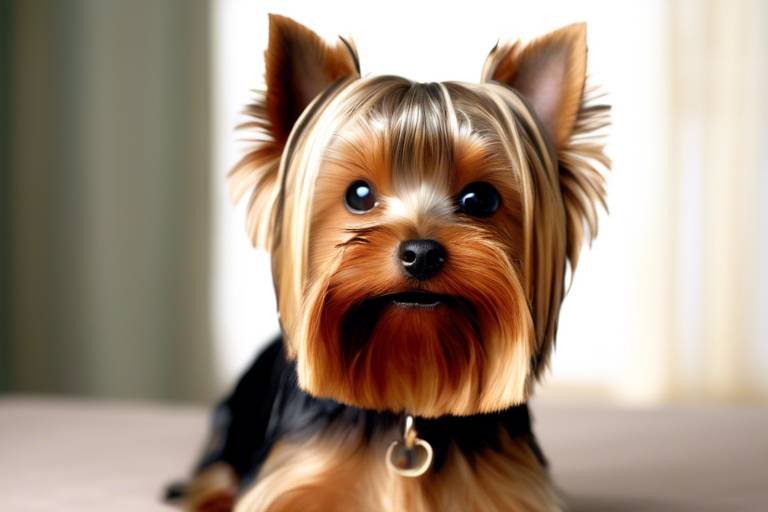The Best Dog Breeds for City Living
Living in a bustling city can be exhilarating, but it also comes with unique challenges, especially when it comes to choosing a furry friend. The right dog breed can make all the difference in creating a harmonious home in an urban environment. In this article, we will explore the most suitable dog breeds for city living, focusing on their adaptability, size, temperament, and exercise needs. Whether you live in a cozy apartment or a bustling neighborhood, there’s a perfect pooch waiting to share your life!
When it comes to city living, size truly matters. Smaller breeds often adapt better to apartments and limited spaces, making them ideal companions for urban dwellers. Think about it: in a small apartment, a Great Dane might feel like a fish out of water, while a tiny Chihuahua could be the perfect fit. Smaller dogs typically require less space to roam and can often find their comfort zone in a cozy corner of your living room. Additionally, they are usually easier to manage in crowded areas, making walks through the city less daunting.
Energy levels are another crucial factor to consider when choosing a dog for city life. Different breeds exhibit varying energy levels, and selecting a dog that matches your lifestyle is essential for a happy coexistence. For instance, if you’re a busy professional who spends long hours at work, a low-energy breed might be the best choice. On the other hand, if you’re an active individual who enjoys outdoor activities, a high-energy breed could be your ideal companion. It’s all about finding that perfect balance!
Low-energy breeds are perfect for city living, as they require less exercise and can comfortably adapt to indoor life. These breeds are particularly suitable for busy professionals and small apartments. Imagine coming home after a long day, only to find your dog curled up on the couch, waiting for you with a wagging tail. That’s the beauty of low-energy dogs! Here are a couple of breeds that fit this description:
The French Bulldog is a prime example of a low-energy breed. Known for its affectionate nature and minimal exercise requirements, this breed has become a favorite among city dwellers. Frenchies are compact, making them perfect for small living spaces, and their charming personalities make them a joy to be around. Plus, they don’t need extensive walks—just a few short strolls around the block will keep them happy!
Shih Tzus are another fantastic low-energy breed, offering companionship and adaptability. Their small size and gentle demeanor make them ideal for apartment living. Shih Tzus love to lounge around and are content with a few play sessions throughout the day. With their friendly nature, they also get along well with neighbors and other pets, making them a delightful addition to any urban household.
For those who thrive on activity, high-energy breeds can also thrive in city environments—provided they receive adequate exercise and mental stimulation. Imagine coming home to a dog that’s bursting with energy, ready to take on the world with you! However, it's essential to ensure that these breeds have daily walks, playtime, and opportunities to explore their surroundings. Without proper outlets for their energy, they may develop behavioral issues, leaving you both frustrated. Breeds like the Border Collie or Jack Russell Terrier can be great options for active individuals who love to stay on the move.
A dog’s temperament plays a significant role in city living. Breeds that are friendly, adaptable, and well-socialized tend to adjust better to the hustle and bustle of urban life. Imagine walking down a busy street with a dog who is calm and friendly, greeting passersby and other dogs with enthusiasm. This not only makes your outings enjoyable but also promotes a sense of community. Friendly breeds are more likely to enjoy interactions with other dogs and people, making city life more enjoyable for both the pet and the owner.
On the flip side, independent breeds can handle being alone for longer periods, which is often necessary for city dwellers with busy schedules. Breeds like the Basenji or Chow Chow can be excellent choices for urban living, as they are less likely to experience separation anxiety. They can entertain themselves while you are away, allowing you to maintain a fulfilling career without feeling guilty about leaving your furry friend at home.
Q: What size dog is best for apartment living?
A: Smaller breeds are generally best for apartment living due to their size and adaptability.
Q: How much exercise do city dogs need?
A: It varies by breed, but most dogs require at least 30 minutes of exercise daily.
Q: Are there dog breeds that are good for busy professionals?
A: Yes! Low-energy breeds like French Bulldogs or Shih Tzus are great for busy professionals.
Q: Can high-energy dogs live in the city?
A: Yes, but they need regular exercise and mental stimulation to thrive.
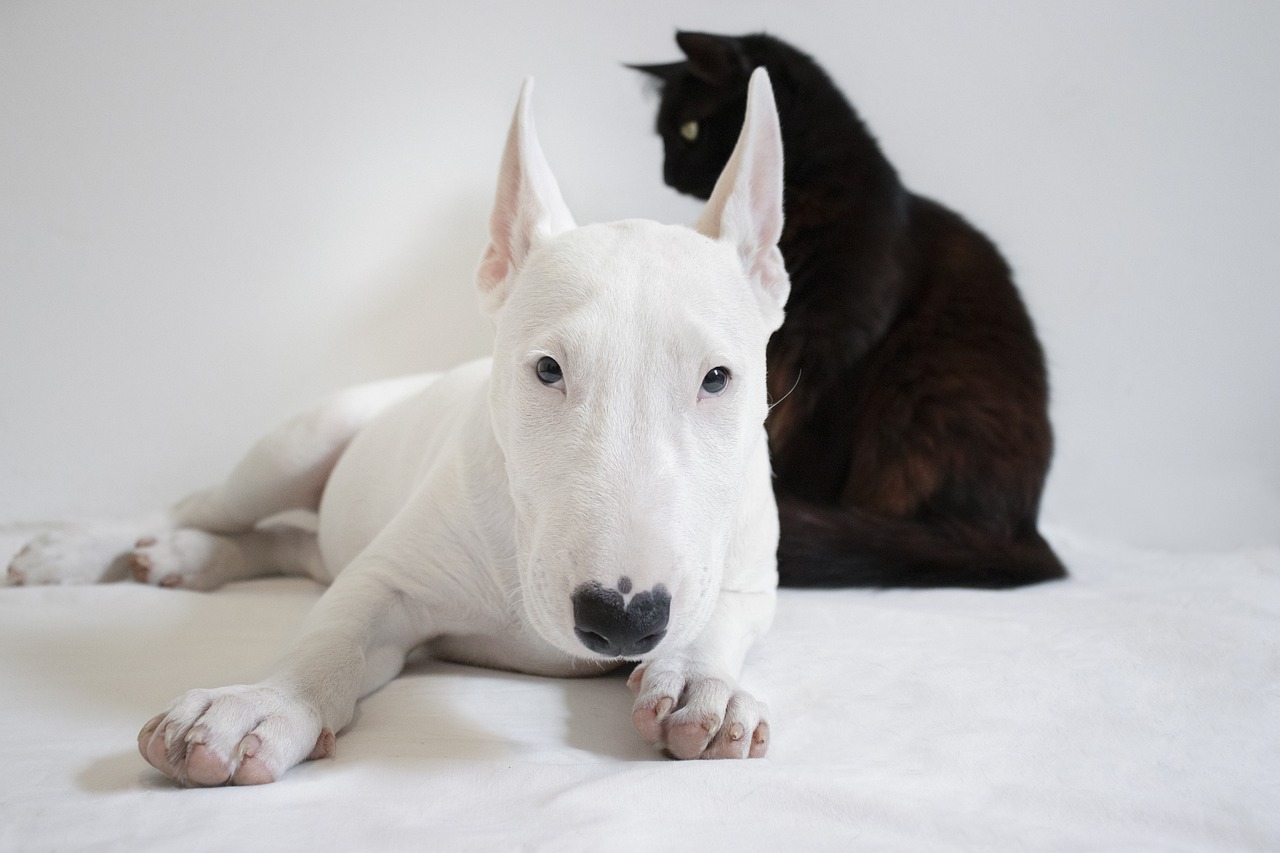
Size Matters
When it comes to city living, size truly matters—not just for your living space, but also for your furry friend. Imagine squeezing into a tiny apartment with a giant dog; it’s like trying to fit a square peg in a round hole! Smaller breeds often adapt better to the confines of urban life, making them ideal companions for those living in bustling cities. With limited room to roam, choosing the right size dog can be the difference between a harmonious home and a chaotic one.
In an urban environment, where parks might be limited and space at a premium, smaller dogs tend to require less room to thrive. They can curl up comfortably on your lap while you sip your morning coffee or take a leisurely stroll down the sidewalk without needing a vast expanse of land to run around in. Think of them as the perfect apartment buddies—they’re compact, often more adaptable, and can easily adjust to your lifestyle.
However, it’s not just about the physical size of the dog; it’s also about their energy levels and how well they handle being indoors. For instance, a small dog that is hyperactive might not be the best fit for a small apartment, as their energy could lead to destructive behaviors. Therefore, it’s essential to consider both size and temperament when selecting a dog breed for city living. Below is a quick comparison of some popular small dog breeds that thrive in urban settings:
| Breed | Size | Energy Level | Exercise Needs |
|---|---|---|---|
| French Bulldog | Small | Low | Minimal |
| Shih Tzu | Small | Low | Minimal |
| Pug | Small | Medium | Moderate |
| Chihuahua | Very Small | Medium | Low |
As you can see from the table, breeds like the French Bulldog and the Shih Tzu are not only small in size but also have low energy levels, making them perfect for apartment living. They require minimal exercise, which fits perfectly with the busy lifestyle of city dwellers. On the other hand, even within smaller breeds, you’ll find variations in energy levels and exercise needs, so it’s crucial to choose one that aligns with your lifestyle.
Ultimately, the right size dog can enhance your city living experience. They can be your cozy companions during Netflix marathons or your enthusiastic partners during short walks around the block. So, when selecting a dog, remember that size isn’t just about how much space they take up; it’s about how they fit into your life and your home. The right match will not only bring joy to your heart but also keep your living environment peaceful and enjoyable.
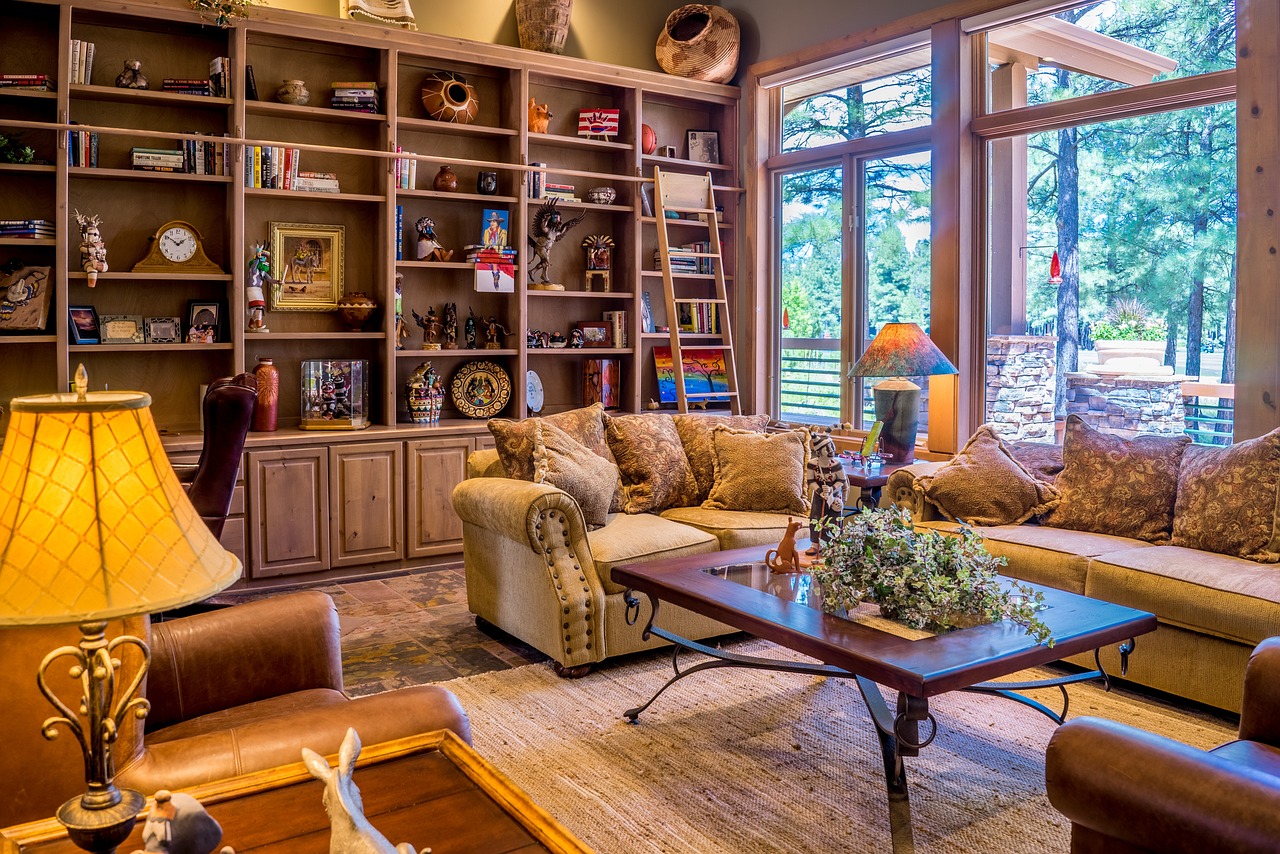
Energy Levels
When it comes to choosing the perfect dog for city living, are a crucial consideration. In a bustling urban environment, the last thing you want is a dog that requires more exercise than you can provide. Think about it: if you have a busy work schedule or a lifestyle that keeps you on the go, having a high-energy dog can feel like having a second job! On the flip side, a dog with low energy can be a cozy companion that fits seamlessly into your city life. So, how do you determine what energy level is right for you and your new furry friend?
In general, dog breeds can be categorized into two main energy levels: low-energy and high-energy. Low-energy breeds are perfect for those who prefer a more laid-back lifestyle, while high-energy breeds suit active individuals who are ready to hit the parks or engage in stimulating activities. Let’s dive deeper into these categories!
Low-energy breeds are like that friend who’s perfectly content to binge-watch a series on the couch instead of going out every weekend. They require less exercise and can adapt comfortably to indoor living, making them ideal for busy professionals or anyone residing in a small apartment. Imagine coming home after a long day, and instead of needing to rush out for a long walk, your dog is happy to curl up next to you. Sounds perfect, right?
Here are a couple of breeds that exemplify low-energy lifestyles:
- French Bulldog: These adorable little companions are known for their affectionate nature and minimal exercise requirements. Their short walks and play sessions are enough to keep them happy, making them a favorite among city dwellers.
- Shih Tzu: With their charming personalities and gentle demeanor, Shih Tzus thrive in smaller spaces. They enjoy short bursts of playtime but are just as happy lounging around with you on a lazy Sunday.
On the other hand, if you’re the type who loves to explore the city, take long hikes, or visit dog parks, a high-energy breed might be your best match. These dogs are like the life of the party—full of enthusiasm and always ready for action! However, be prepared: they need regular exercise and mental stimulation to prevent boredom and potential behavioral issues.
To ensure a happy and healthy life for a high-energy dog in the city, you’ll want to commit to daily walks, playtime, and possibly even doggy daycare. Think of it as a workout buddy who keeps you active while also providing companionship. If you’re ready to invest that time and energy, breeds like the Border Collie or Labrador Retriever can be fantastic companions.
Ultimately, understanding your lifestyle and the energy levels of different breeds is key to making the right choice. So, ask yourself: are you more of a couch potato or an adventure seeker? Your answer will guide you to the perfect pup that complements your urban lifestyle!
1. How do I know if a dog is low-energy or high-energy?
When researching breeds, look for descriptions of their activity levels. Additionally, consider their age; puppies tend to have higher energy levels than older dogs.
2. Can a high-energy dog live in an apartment?
Yes, but it requires commitment. High-energy dogs need regular exercise and mental stimulation. Daily walks and playtime are essential to keep them happy in an apartment setting.
3. What are some signs of a bored dog?
Signs include destructive behavior, excessive barking, or restlessness. If your dog is engaging in these behaviors, it may need more exercise or mental engagement.
4. Are there any dog breeds that are good for first-time owners?
Yes! Breeds like the Cavalier King Charles Spaniel or the Bichon Frise are often recommended for first-time owners due to their friendly nature and adaptability.
Low-Energy Breeds
When it comes to city living, are like that cozy blanket on a chilly night—perfect for those who prefer a more relaxed lifestyle. These dogs are not just easygoing; they bring a sense of calm and companionship that can be incredibly comforting in the hustle and bustle of urban life. Imagine coming home after a long day, and instead of a whirlwind of energy, you’re greeted by a gentle wag and a snuggle buddy who’s just as content to lounge on the couch as you are. Sounds delightful, right?
Low-energy breeds typically require less exercise, making them ideal for those living in apartments or smaller spaces. They thrive in environments where they can enjoy short walks and plenty of indoor playtime. For busy professionals or those with a more laid-back lifestyle, these breeds can be a match made in heaven. Here are a few standout low-energy breeds that might just fit the bill:
- French Bulldog: Known for their distinctive bat-like ears and adorable squished faces, French Bulldogs are not only charming but also incredibly affectionate. They enjoy short walks and play sessions but are just as happy to curl up on the couch with you. Their minimal exercise needs make them a top choice for city dwellers.
- Shih Tzu: With their luxurious coats and sweet personalities, Shih Tzus are the ultimate lap dogs. They thrive in apartment settings, requiring only moderate exercise. Their friendly nature and adaptability to various living situations make them perfect companions for city life.
- Pug: These little clowns of the dog world are known for their playful demeanor and charming antics. Pugs are content with short walks and love to be around people, making them excellent companions for urban living.
While these breeds are generally low-energy, it’s essential to provide them with mental stimulation to keep boredom at bay. Simple games like hide and seek or puzzle toys can be a great way to engage their minds without requiring extensive physical activity. Remember, even low-energy dogs need some form of exercise to stay healthy and happy.
In conclusion, low-energy breeds can be the perfect fit for city living. They adapt well to smaller spaces, require less exercise, and offer companionship that can brighten your day. So, if you’re considering adding a furry friend to your urban lifestyle, these breeds might just be the right choice!
French Bulldog
The is a delightful companion that has captured the hearts of many urban dwellers. With their small stature, these dogs are perfectly suited for apartment living, making them one of the most popular choices for city residents. Imagine coming home after a long day, and there waiting for you is a Frenchie, tail wagging, ready to shower you with affection. They thrive on human interaction and are known for their playful yet gentle demeanor.
One of the standout features of French Bulldogs is their minimal exercise requirements. Unlike some breeds that need hours of vigorous activity, Frenchies are content with short walks and some playtime indoors. This makes them ideal for busy professionals or anyone living in a bustling city where outdoor space may be limited. Their charming personalities and low-energy nature mean they can easily adapt to your lifestyle, whether you’re a couch potato or enjoy a leisurely stroll in the park.
Another appealing aspect of the French Bulldog is their unique appearance. With their bat-like ears, compact bodies, and expressive faces, they are hard to resist. Their playful antics and affectionate nature make them excellent companions, and they often form strong bonds with their owners. However, it’s essential to remember that they can be prone to certain health issues, particularly respiratory problems due to their brachycephalic (flat-faced) structure. Regular vet check-ups and a watchful eye on their health are crucial to ensuring a happy life for your Frenchie.
In addition to their lovable personality, French Bulldogs are also relatively easy to train. They respond well to positive reinforcement, making training sessions a fun experience for both the dog and the owner. When socialized properly, Frenchies can be friendly with both humans and other pets, which is a significant advantage in a city setting where you’ll encounter various people and animals on your daily walks.
To sum it up, if you’re considering adding a furry friend to your urban life, the French Bulldog is a fantastic option. Their adaptability, low exercise needs, and affectionate nature create a harmonious living situation for city dwellers. Just remember to give them the love and care they deserve, and you’ll have a loyal companion by your side, ready to navigate the urban jungle with you.
Shih Tzu
The is not just another cute face in the dog world; it's a breed that embodies the essence of city living. With their compact size, they fit perfectly into small apartments, making them a favorite among urban dwellers. Weighing between 9 to 16 pounds, these little furballs don’t need much space to roam, which is a huge plus when you’re navigating the concrete jungle. Imagine coming home after a long day in the city and being greeted by a lively little companion that’s always ready to snuggle. Sounds delightful, right?
One of the most appealing aspects of the Shih Tzu is their gentle demeanor. They are known for being friendly and affectionate, often forming strong bonds with their owners. This breed thrives on companionship and loves to be around people, making them ideal for those who might feel lonely in a bustling city. Plus, their playful nature means they can bring a lot of joy into your life, turning even the dullest days into something special.
Another key factor to consider is their exercise needs. Shih Tzus are not high-energy dogs, which means they don’t require extensive daily runs or vigorous play sessions. A couple of short walks each day and some indoor playtime are usually enough to keep them happy and healthy. This is particularly beneficial for busy professionals who might not have the time for long outdoor adventures. Just picture this: a quick stroll around the block, followed by some quality time on the couch—what a perfect day!
However, it’s important to keep in mind that Shih Tzus do require some grooming to maintain their beautiful coats. Regular brushing is essential to prevent matting, and occasional trips to the groomer will keep them looking their best. But don’t let that intimidate you! Grooming can be a bonding experience, turning a chore into a delightful routine where you can pamper your furry friend.
In summary, the Shih Tzu is an ideal companion for city dwellers due to their adaptability, low exercise requirements, and affectionate nature. They thrive in urban settings, bringing warmth and joy to your life while being perfectly content in smaller living spaces. If you’re looking for a loyal, loving pet that can handle the hustle and bustle of city life, the Shih Tzu might just be the perfect match for you.
- Are Shih Tzus good for first-time dog owners?
Absolutely! Their friendly nature and manageable size make them a great choice for first-time pet parents. - How often should I groom my Shih Tzu?
Regular grooming is recommended, ideally once every 4-6 weeks, to keep their coat healthy and free of mats. - Do Shih Tzus get along with other pets?
Yes, Shih Tzus are generally friendly and can get along well with other dogs and even cats, especially if socialized from a young age. - How much exercise do Shih Tzus need?
They require moderate exercise; daily walks and some playtime indoors are usually sufficient to keep them happy.
High-Energy Breeds
For those who thrive on activity and excitement, high-energy dog breeds can be the perfect companions in a bustling city environment. Imagine coming home after a long day, and instead of sinking into the couch, you’re greeted by a furry bundle of energy, ready to play! These breeds are not just about high energy; they bring a vibrancy to urban living that can invigorate your daily routine. However, it’s essential to understand that while these dogs can adapt to city life, they require a commitment to regular exercise and mental stimulation to keep them happy and healthy.
High-energy breeds are often characterized by their enthusiasm and zest for life. They thrive on interaction, playtime, and exploration, making them ideal for active individuals or families. Think of them as your personal trainers—always ready to get you moving! However, if you live in a small apartment or have a busy schedule, you need to ensure you can meet their needs. Regular visits to the park, engaging in dog sports, or even daily runs can help channel their energy positively. If you’re considering bringing a high-energy breed into your life, here are a few popular options:
- Border Collie: Known for their intelligence and agility, Border Collies are often considered the smartest dog breed. They need a lot of exercise and mental challenges, making them perfect for active owners.
- Australian Shepherd: These dogs are not only energetic but also incredibly loyal. They thrive in environments where they can run and play, and they love to be involved in family activities.
- Jack Russell Terrier: Small but mighty, Jack Russells are bursting with energy and curiosity. They require plenty of exercise and mental stimulation to stay happy.
While high-energy breeds can adapt to city life, it’s crucial to ensure they have enough outlets for their energy. This might include:
| Activity | Description | Frequency |
|---|---|---|
| Daily Walks | Essential for physical exercise and mental stimulation. | At least 1 hour |
| Playtime | Interactive games like fetch or tug-of-war. | Multiple times a day |
| Dog Parks | Socialization with other dogs and off-leash running. | Several times a week |
| Training Sessions | Engaging their minds with obedience or agility training. | Regularly |
By ensuring that your high-energy dog has enough physical and mental stimulation, you can create a harmonious living environment that benefits both you and your furry friend. Remember, a tired dog is a happy dog! So, if you’re ready to embrace the excitement of high-energy breeds, be prepared for a lifestyle filled with adventure, joy, and, yes, a little bit of chaos. After all, isn’t that what life in the city is all about?
Q: Can high-energy breeds live in apartments?
A: Yes, but they require regular exercise and mental stimulation to thrive. Daily walks and playtime are essential.
Q: What are some activities to keep high-energy dogs engaged?
A: Activities like agility training, fetch, and visits to dog parks are great for burning off energy.
Q: How much exercise does a high-energy dog need?
A: Most high-energy breeds need at least one hour of exercise per day, but this can vary based on the breed.
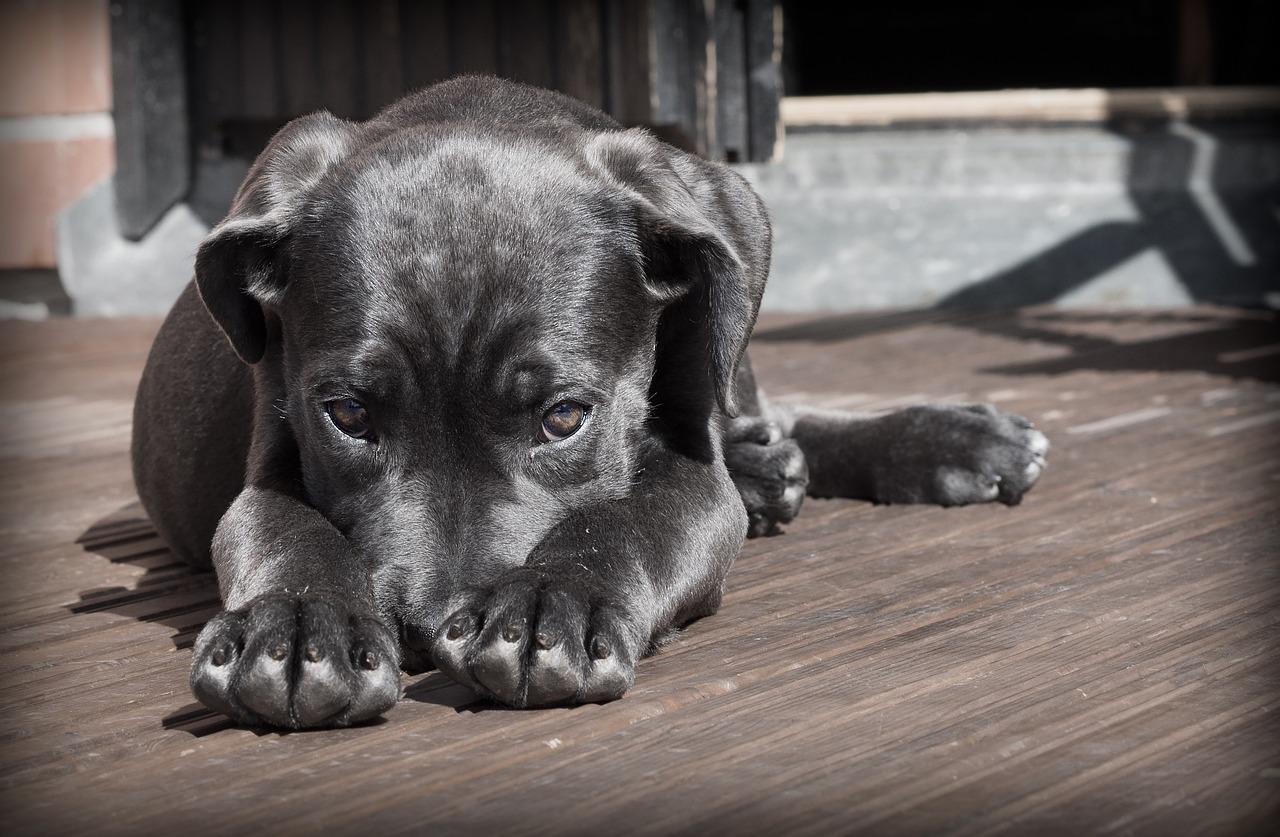
Temperament and Socialization
The temperament of a dog is a key factor when it comes to living in a bustling city. With the constant hustle and bustle, the last thing you want is a dog that is overly anxious or aggressive. Instead, opting for breeds that are known for their friendly and adaptable nature can make city life much more enjoyable. Think about it—just like you wouldn’t want to live with a roommate who’s always grumpy or standoffish, you wouldn’t want a dog that’s constantly on edge, right?
Socialization is equally important. In a city, your dog will encounter a variety of people, other pets, and different environments. A well-socialized dog is more likely to handle these encounters with ease. Breeds that thrive on social interaction tend to be better suited for urban living. For instance, dogs like the Golden Retriever and the Labrador Retriever are not only friendly but also love meeting new people and dogs. Their playful demeanor can turn a mundane walk into an exciting adventure, making city life feel more vibrant.
It’s also essential to consider the independence of a breed. In a city, many owners have busy work schedules and may need to leave their dogs alone for longer periods. Breeds that are naturally more independent can handle this better without developing separation anxiety. For example, the Basset Hound and the French Bulldog are known for their laid-back personalities, allowing them to chill at home while you’re out conquering the urban jungle.
To summarize, when choosing a dog for city living, look for breeds that are:
- Friendly - Enjoy interactions with others.
- Adaptable - Can adjust to the fast-paced urban lifestyle.
- Independent - Comfortable being alone for extended periods.
By focusing on these traits, you can ensure that both you and your furry friend will thrive in an urban environment. Remember, a happy dog leads to a happy owner, and the right temperament can make all the difference in your city adventures!
Q1: What is the best dog breed for small apartments?
A1: Breeds like the French Bulldog and Shih Tzu are excellent choices for small apartments due to their compact size and low energy levels.
Q2: How can I socialize my dog in the city?
A2: Regular visits to dog parks, attending training classes, and exposing your dog to various environments can help with socialization.
Q3: Are there any dog breeds that are better suited for busy professionals?
A3: Yes, breeds like the Basset Hound and French Bulldog are more independent and can handle being alone for longer periods, making them suitable for busy lifestyles.
Q4: What should I consider before getting a dog in the city?
A4: Consider the dog's size, energy level, temperament, and your own lifestyle to ensure a good match for urban living.
Friendly Breeds
When it comes to city living, having a dog that is friendly can make all the difference. Imagine walking through a bustling park, surrounded by the sounds of laughter and chatter, and your furry companion is happily wagging their tail, ready to greet every passerby. Friendly dogs are not just a joy to have around; they also enhance your social life, making it easier to connect with other dog lovers. Breeds like the Labrador Retriever and Golden Retriever are known for their friendly disposition. These breeds are often described as the ultimate social butterflies of the canine world.
But what makes these breeds so friendly? It's all about their temperament and how they were bred. Friendly breeds typically have a genetic predisposition to be sociable and gentle. They thrive on human interaction and enjoy being part of a pack—whether that pack is made up of humans or other dogs. In a city environment, where encounters with other dogs and people are frequent, this trait is invaluable. For instance, Labradors are not only friendly but also highly trainable, making them perfect for city dwellers who want a dog that can easily navigate crowded streets and dog parks.
Another aspect of friendly breeds is their adaptability. Dogs like the Pug and Cavalier King Charles Spaniel are small in size, making them well-suited for apartment living. They are known to be affectionate and enjoy cuddling, which can be a great comfort after a long day in the city. Their friendly nature allows them to bond easily with their owners and even with visitors, creating a warm and welcoming home environment.
Furthermore, friendly breeds often engage in play and social activities. This can include anything from a game of fetch at the local park to participating in doggy playdates. The more social interaction these dogs have, the happier and healthier they become. It's essential for city dwellers to consider how often they can provide these opportunities for their pets. A friendly dog that is left alone for long periods may become anxious or develop behavioral issues. Therefore, it's crucial to balance work commitments with the social needs of your furry friend.
In conclusion, if you're considering adopting a dog for city living, look for breeds known for their friendly temperament. Not only will you enjoy their companionship, but you'll also find that they enhance your social life and help you connect with others in your urban environment. Remember, a friendly dog is not just a pet; they can be a bridge to new friendships and experiences in the heart of the city.
- What are the best dog breeds for small apartments? Some of the best breeds for small apartments include French Bulldogs, Pugs, and Shih Tzus due to their small size and low exercise needs.
- How much exercise do friendly breeds need? Friendly breeds generally require daily exercise, which can range from walks to playtime in the park. It's essential to keep them active to maintain their happiness.
- Are friendly breeds good with children? Yes, many friendly breeds such as Golden Retrievers and Labradors are known for their gentle and patient nature with children, making them excellent family pets.
- Can friendly breeds adapt to busy city life? Absolutely! Friendly breeds often thrive in urban settings as long as they receive sufficient social interaction and exercise.
Independent Breeds
When it comes to city living, not every dog thrives on constant companionship. Some breeds are naturally more independent, making them ideal for urban dwellers who may spend long hours away from home. These dogs are not only capable of entertaining themselves, but they also tend to handle solitude with grace. Imagine a dog that doesn’t need to be glued to your side every minute of the day—sounds like a dream, right?
Independent breeds often have a strong sense of self and can adapt to their surroundings without requiring constant attention. This quality is particularly beneficial for busy city folks who juggle work, social activities, and other commitments. Breeds like the Basenji and Shiba Inu exemplify this independence. They are known for their self-sufficiency and can comfortably spend time alone without developing anxiety or destructive behaviors.
Moreover, these breeds often possess a unique personality that adds a delightful twist to city life. For instance, the Basenji is often referred to as the "barkless dog" because it doesn’t bark like other breeds; instead, it makes a unique yodel-like sound. This trait can be a blessing for apartment dwellers who need to keep noise levels down. On the other hand, the Shiba Inu is renowned for its spirited nature and fox-like appearance, making it a charming companion that can also entertain itself when you’re busy.
However, just because these breeds are independent doesn’t mean they don’t require exercise and socialization. Regular walks and playtime are still essential to keep them healthy and happy. In fact, providing them with mental stimulation through puzzle toys or training sessions can help curb any potential boredom. Think of it as giving them a job to do, which keeps their minds engaged and their spirits high.
To sum it up, independent breeds are perfect for city living due to their ability to adapt to a busy lifestyle while still being loving companions. They offer a wonderful balance of affection and autonomy, allowing you to enjoy your urban life without the constant worry of your pup feeling neglected. So, if you’re considering adding a four-legged friend to your city apartment, think about one of these independent breeds!
- What are some examples of independent dog breeds?
Some popular independent breeds include the Basenji, Shiba Inu, and Chow Chow. - Do independent breeds require less exercise?
While they may be more self-sufficient, independent breeds still need regular exercise to stay healthy and happy. - Can independent dogs still be affectionate?
Absolutely! Many independent breeds enjoy affection and companionship but are also comfortable spending time alone.
Frequently Asked Questions
- What are the best dog breeds for small apartments?
When living in a small apartment, it's essential to choose breeds that are compact and adaptable. Breeds like the French Bulldog, Shih Tzu, and Pug are excellent choices as they are small in size and have lower exercise requirements, making them perfect companions for city dwellers.
- How much exercise do city dogs need?
The exercise needs of dogs can vary significantly by breed. Low-energy breeds may only require short walks and playtime, while high-energy breeds demand more vigorous exercise and mental stimulation. Generally, aiming for at least 30 minutes of activity each day is a good rule of thumb for most dogs, but be sure to tailor this to your dog's specific needs.
- Are there dog breeds that are better for busy lifestyles?
Absolutely! Independent breeds, such as the Basenji or Chow Chow, can manage being alone for longer periods, making them suitable for owners with busy schedules. Additionally, low-energy breeds can also adapt well to a less active lifestyle, allowing you to enjoy your time in the city without constant worry about their needs.
- How can I help my dog adjust to city life?
Gradual exposure is key! Start by taking your dog on short walks around the neighborhood to familiarize them with the sights and sounds of city life. Socializing with other dogs and people is also crucial. Consider enrolling them in training classes or dog parks to help build their confidence and adaptability.
- What should I consider when choosing a dog for city living?
Consider factors such as size, energy level, and temperament. Smaller breeds typically do better in apartments, while the energy levels of the dog should match your lifestyle. A friendly and social temperament is also beneficial for navigating the hustle and bustle of city life.
- Can high-energy breeds live happily in the city?
Yes, high-energy breeds can thrive in urban environments, but they require a commitment to regular exercise and mental stimulation. Daily walks, trips to the dog park, and engaging activities like fetch or agility training can help keep them happy and healthy.


